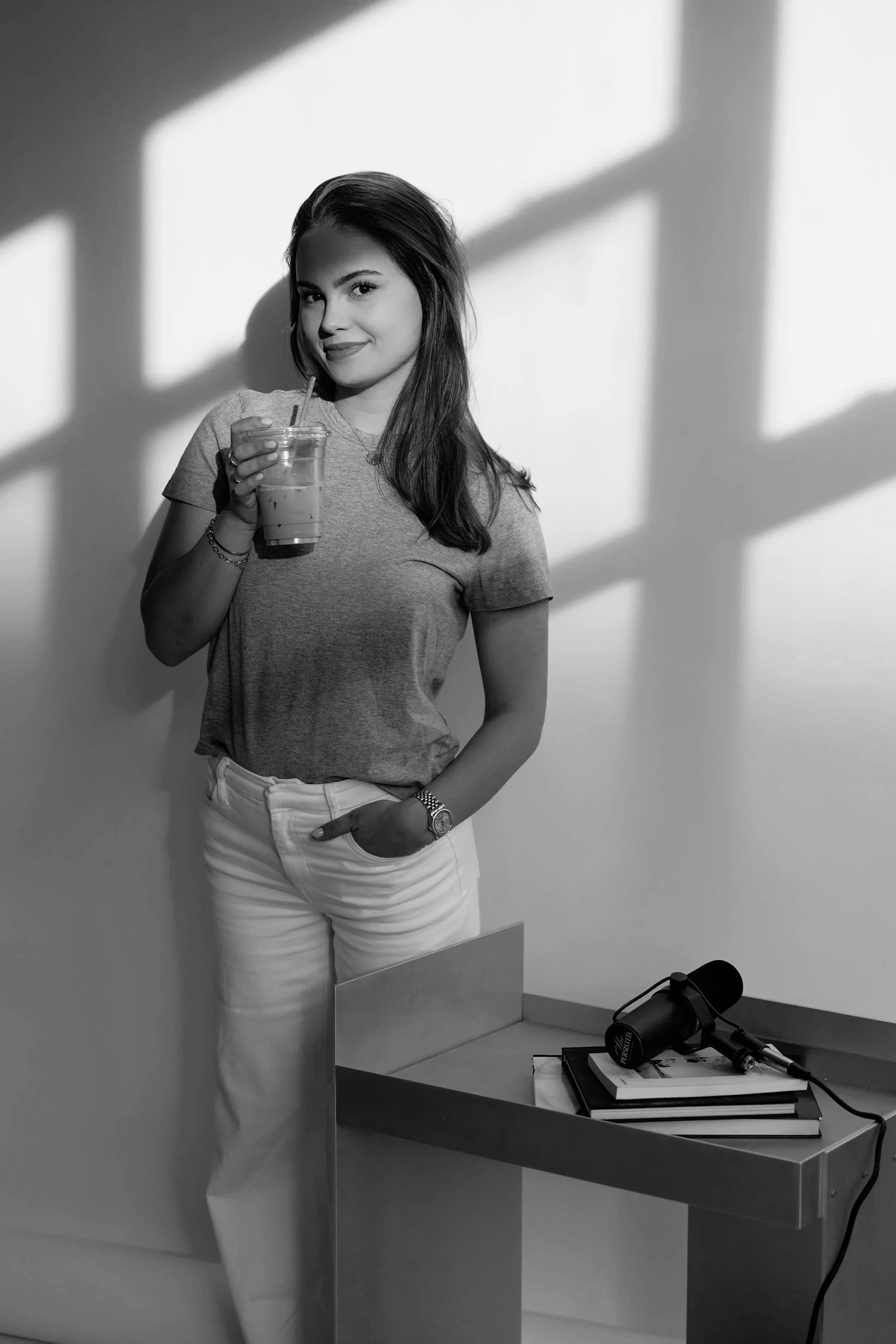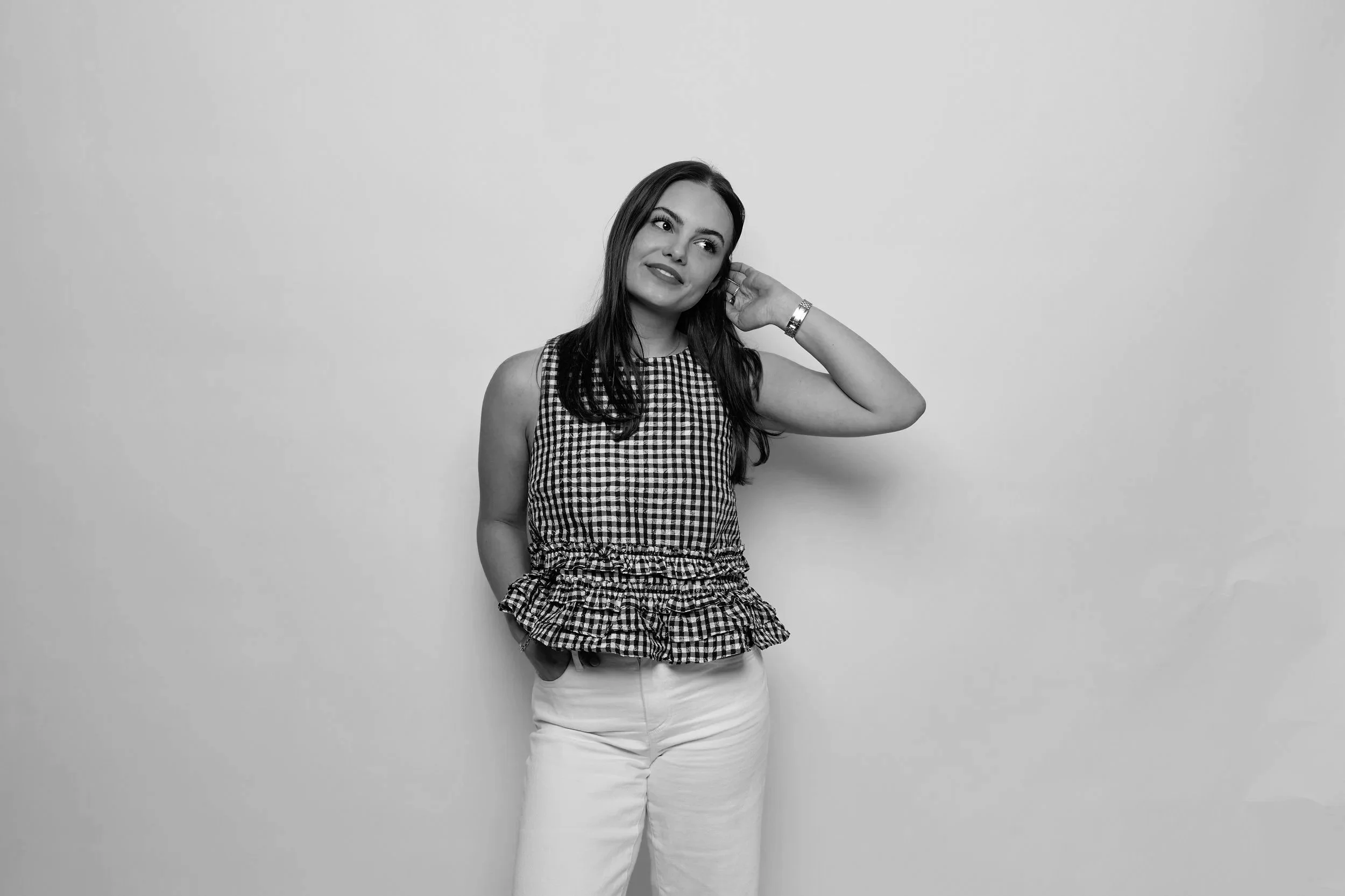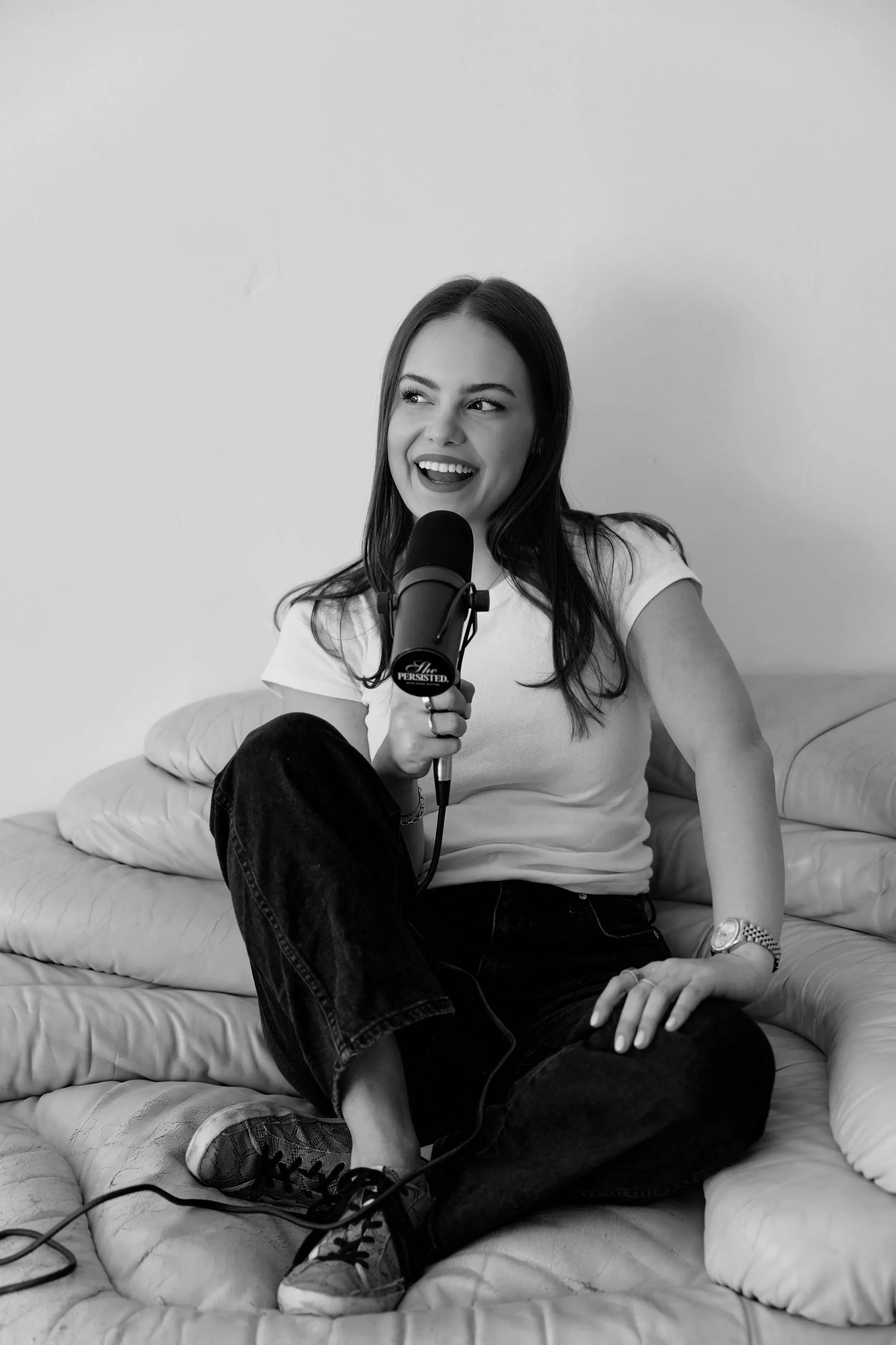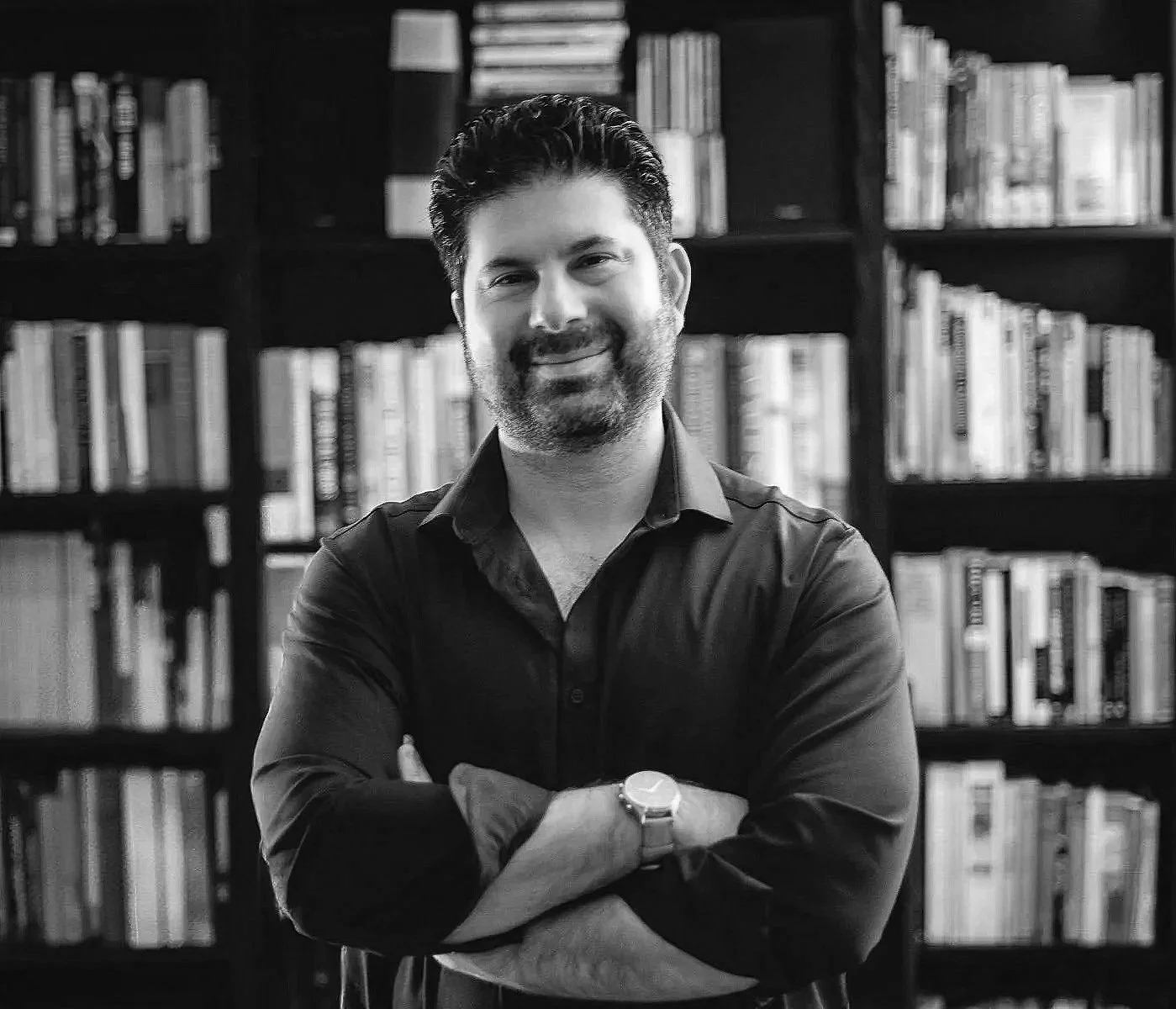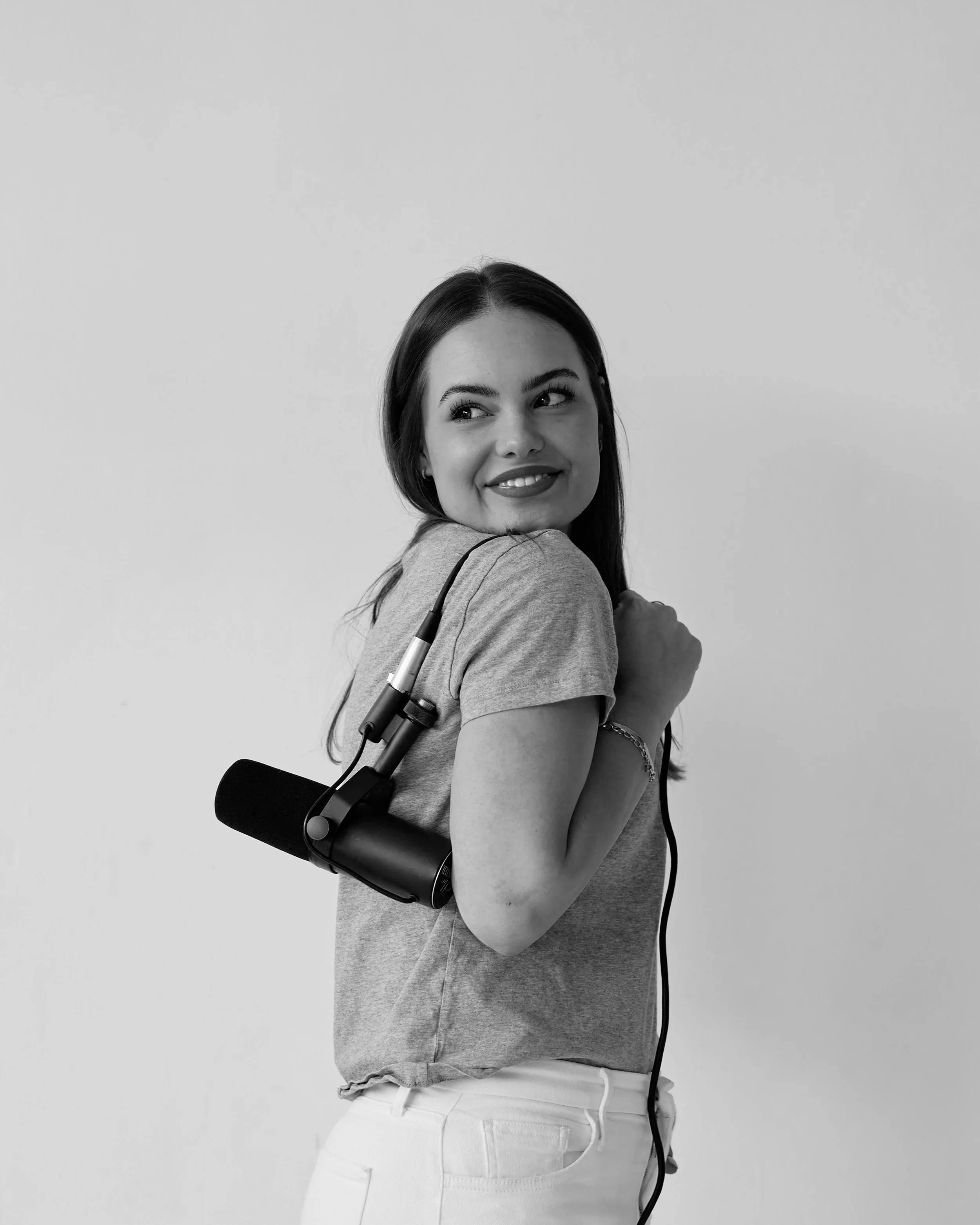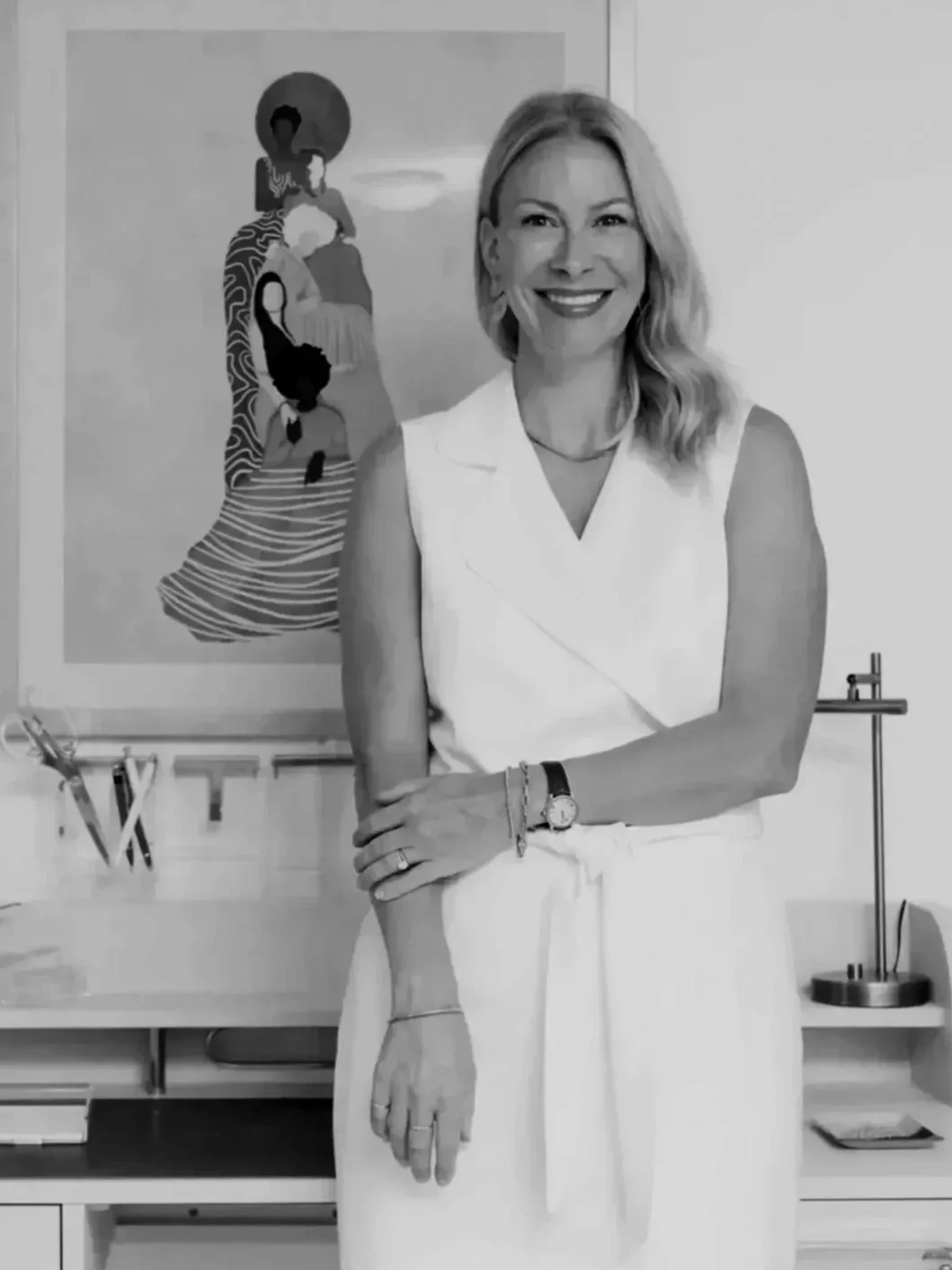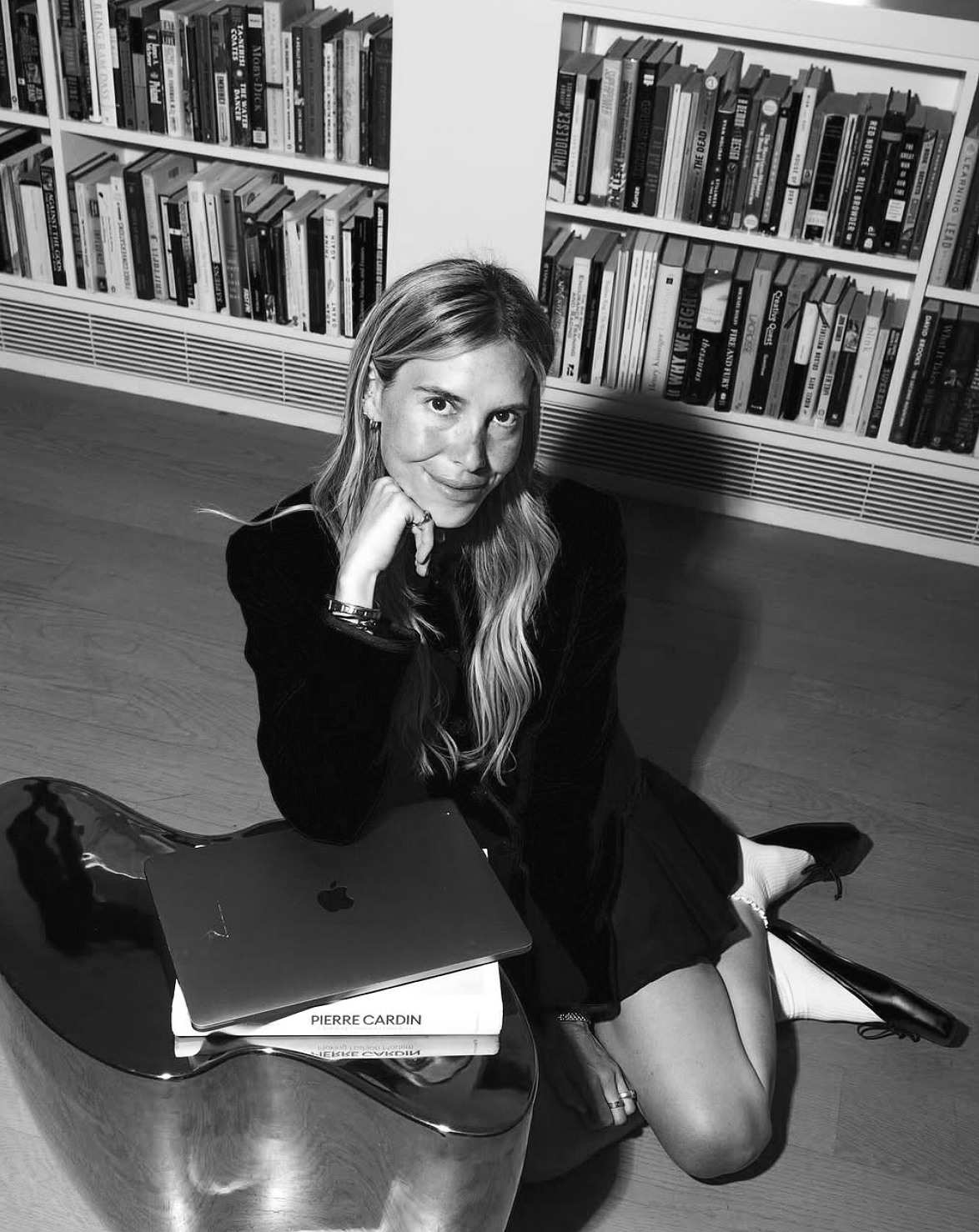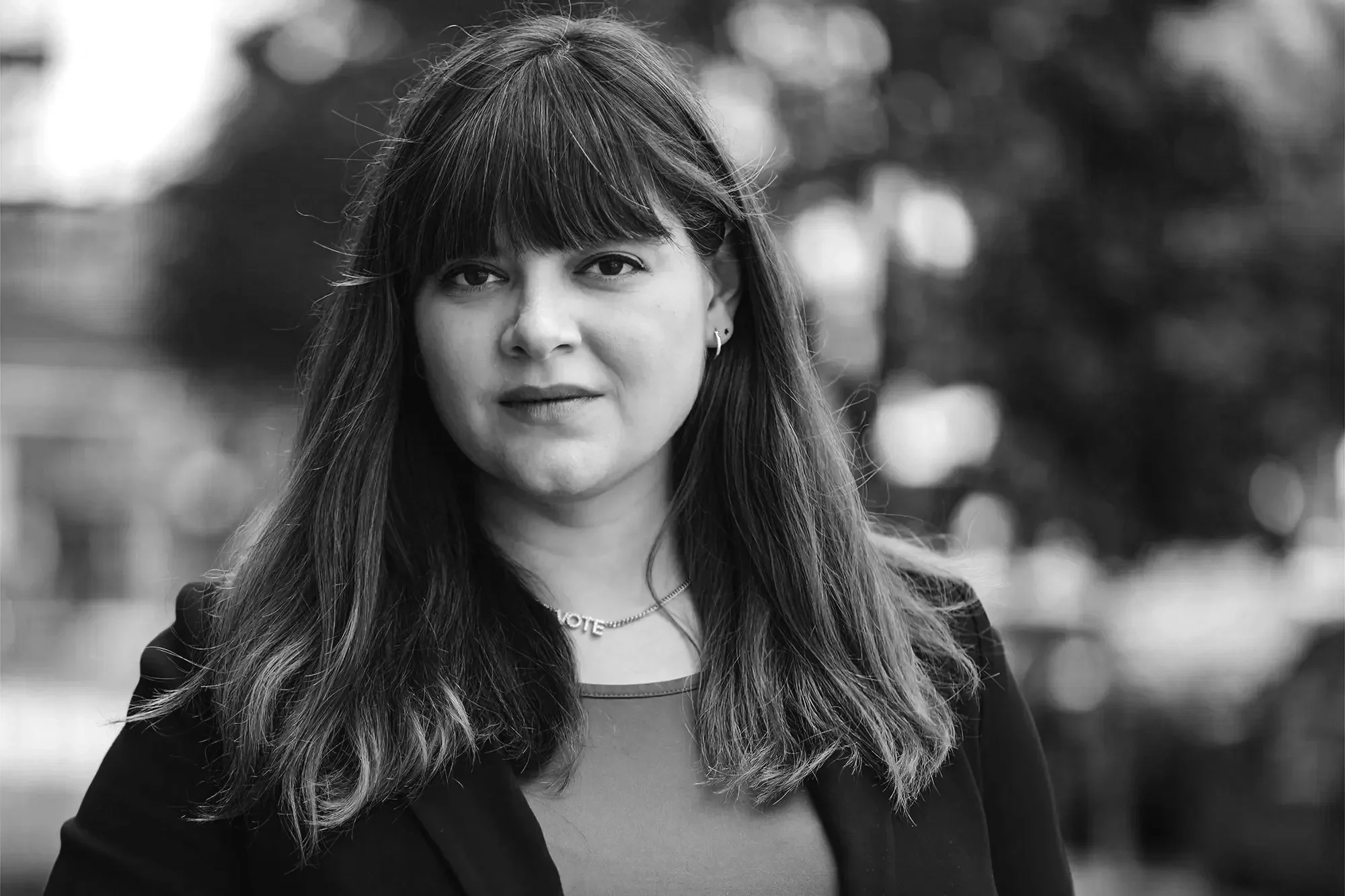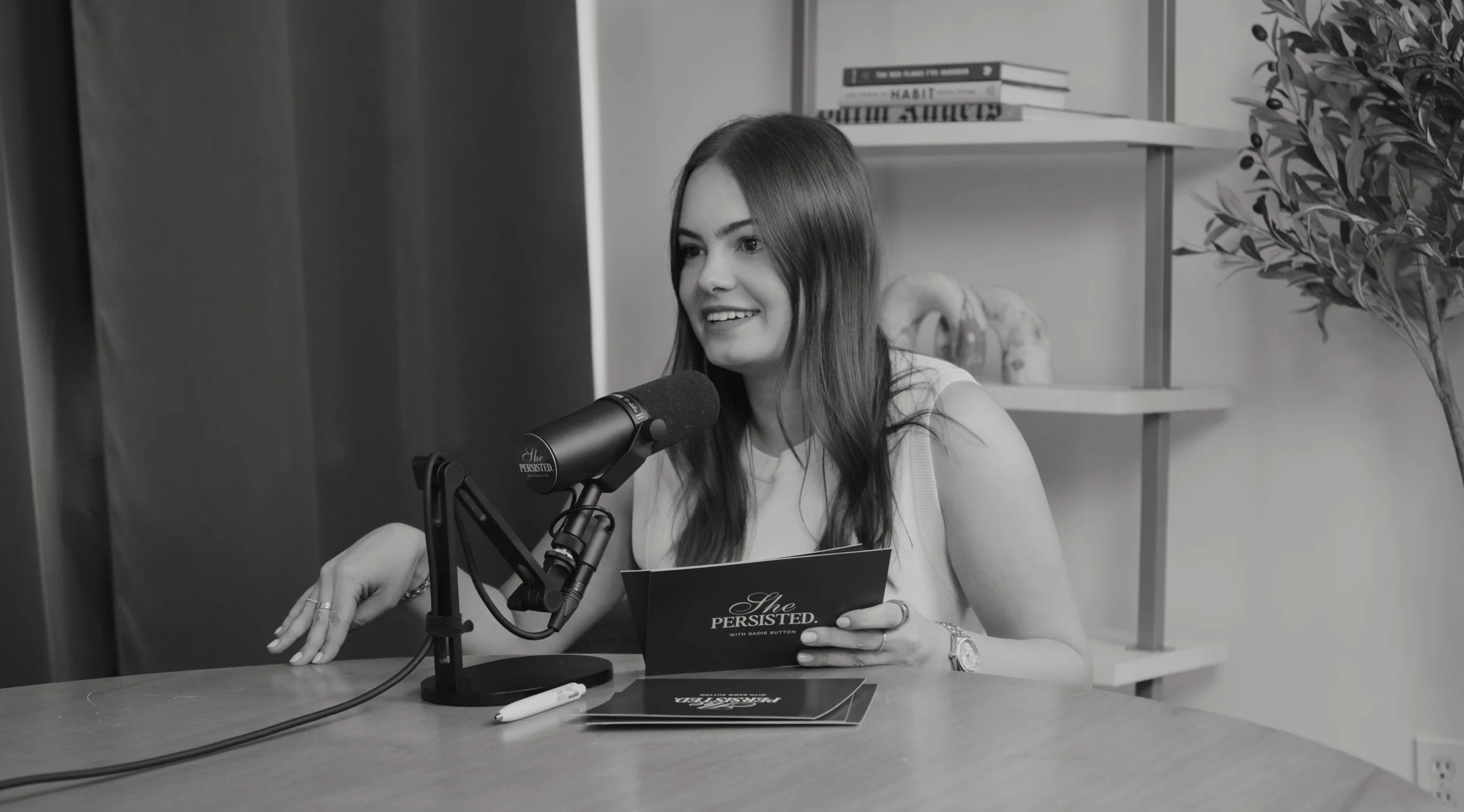226. summertime sadness?! answering your most asked mental health q’s
listen to this episode:
Tune in and subscribe on your favorite platform: Apple Podcasts | Spotify | YouTube | Amazon | GoodPods | Castbox | iHeart Radio | overcast | pocketcasts
in this week’s solo episode, i’m answering a question on so many of your minds right now: why can summer be so hard on our mental health?!
here, i’ll be sharing my favorite psychology insights on why our mental health can struggle in the summer before reacting to trending tiktoks, articles, and reddit posts on summer mental health. i wrap things up by explaining how you can set yourself up for success this summer (and in summers to come!).
i’ll cover topics including:
a mental health mantra you need to hear
making your environment work for your mental health
my theory on why mental health can decline in the summer
why school is actually good for mental health (shocking, i know)
finding purpose + structure during summer break
how to stay social + make friends in summer
battling boredom + loneliness when you’re home for the summer
choosing the right summer job for you
the importance of actually relaxing during summer
life hacks for getting out of a mental health rut
Mentioned:
SHOP GUEST RECOMMENDATIONS: https://amzn.to/3A69GOC
About She Persisted
She Persisted is THE Gen Z mental health podcast. In each episode, Sadie brings you authentic, accessible, relatable conversations about every aspect of mental wellness. Expect evidence-based, Gen Z-approved resources, coping skills (lots of DBT), insights, and education in each piece of content you consume. She Persisted offers you a safe space to feel validated and understood in your struggle while encouraging you to take ownership of your journey and build your life worth living.
a note: this is an automated transcription so please ignore any accidental misspellings!
Sadie: [00:00:00] Welcome to She Persisted, the Gen Z Mental Health Podcast. I'm your host, Sadie Sutton. Let's get into it.
one of the most ineffective things that we can rely on is willpower.
and even if we have the goals to have consistent routines and challenge ourselves and do the things that we know are good for ourselves, a lot of the time we fall to our systems. like willing our way into behaviors is really, really, really ineffective. And that's why I think that so many people either struggle with their mental health in the summer or it becomes a great time to invest in their mental health.
Hello. Hello and welcome back to another episode of She Resisted. If this is your first episode, welcome.
Happy summer you guys. honestly, we're nearing back to school and ideally we would've recorded this episode earlier in the summer. However, I've moved twice in three months and started a new full-time job and things have been crazy. Adulting is a lot of work. But I wanted to get you guys this episode because I feel like it's a really important topic.
And the other benefit of me delaying this is that we're at the point in the summer where you're [00:01:00] aware of whether what you're doing is working or if it's not so effective. And you're also probably thinking about, are there things I want to do differently next year? And if so, now is the time to implement those.
So I'm hoping this doesn't come too late, I'm hoping there's things that you guys can take away from this episode, find helpful and implement into your lives. So I wanna start with a philosophy piece of psychology, research mantra, whatever you wanna call it. And if this is someone's specific quote, I don't have a citation for you, but it is a concept that is backed by a lot of psychology research, and it's something that I think about often, which is that we don't rise to our goals, we fall to the level of our systems.
I've talked about this before in episodes, and I especially went into it in the Grit Lab recap that I did when I took Angela Duckworth's class and her episode is coming out in two weeks. We're staying it live here on the podcast, so I'm holding myself to it. It's happening.
It's an incredible interview. I'm so excited. This was like literally probably my number one guest of all time that I wanted to have on the podcast, and I can't wait for you guys to listen. We also dive into this [00:02:00] there, but the idea is that as humans, one of the most scarce resources we have, one of the most ineffective things that we can rely on is willpower.
And the idea of just like mentally forcing ourselves not to do things or telling ourselves we shouldn't do things or talking ourselves out of it, like willing our way into behaviors is really, really, really ineffective. Willpower is something that we don't have a lot of. It's not very efficient, it's not very good.
It's not the what we should be putting our goals and our mental health. On, like, we should not be relying on willpower. We should be putting ourselves in context that are effective for our mental health, and we should be setting up systems that result in our mental health being effective. and that means so many different things.
It means the relationships that you surround yourself with. So am I surrounded by people that help me feel connected and validated and heard and seen and encouraged me to socialize with them on a regular basis and check in on me? Or am I putting myself in relationships where a, there's a lot of willpower involved, I have to see these people, or I'm gonna [00:03:00] feel lonely, like I have to put myself out there, or like I'm gonna feel isolated, or I have to go above and beyond to voice how I'm feeling so that I feel validated and seen, or I have to use a ton of coping skills and set a ton of boundaries And do a lot of work after the fact after seeing this person because it's bad for my mental health. Like how can we set ourselves up for success in our relationships instead of doing all this like willpower, mental work after the fact to make that either a neutral or a positive experience. Another area here is daily routine.
So like your sleep routine, when you're getting up, what you're doing in the morning, what you're doing in the evening, the content you're consuming, are those things that have like a neutral or a net positive on your mental health? Or are those things where you're applying like a lot of willpower and intention and making choices at every point to improve your mental health?
And so the routines and systems of your day-to-day basis can also have a net positive or a net negative on your mental health. So I have found that like having a nine to five, which I started in June, is really, really great and effective and helpful for my mental health. And it was [00:04:00] honestly something that I was worried about.
'cause I've struggled with my sleep routine in the past. A college schedule where you have different places to be at different times of the day and there's a lot of like willpower and , self-initiative involved. And are you gonna study? Are you gonna see your friends? What time are you doing meals?
There's not like that set place that you have to be at a certain time. And some people are great with doing that for themselves. I am so proud of you, if that's you, that's not me. And so being like, okay, every single day I have to be in the office at 9:00 AM which means that I have to be in bed by like 10, 11 the night before or I'm exhausted, has been really effective and really helpful.
And so it's no longer a goal that like, I would like to wake up at the same time every day And I would like to have a consistent schedule and I would like to go to bed early, which is historically what has been, it's a system and it's a context, which is that I have to be at work early and.
Obviously there's still that choice point, right? Like technically you don't have to be there. I could choose to not wake up. I could choose to not set alarms. I could choose to go to bed late. I could be late for work and get fired, et cetera, right? Like that DVT if we always have a choice. [00:05:00] But that repercussion being significant enough that I'm like, I have to be there.
This is not a negotiable. And so as a result, my schedule adjusts has been really effective and really helpful. And And that's why I think that so many people either struggle with their mental health in the summer or it becomes a great time to invest in their mental health. Because whether you realize it or not, school is a really big mental health protective factor.
And I've talked about this before, which is that a lot of people struggle with their mental health for the first time when they go to college because they lose those protective factors that have been built in place in high school, which that you have that really strict consistent schedule which forces your sleep to like be to some degree consistent.
You have a lot of activities and extracurriculars, whether it's friends, sports, classes, , clubs. Teams that you're on, where you are consistently seeing people, you have a sense of purpose, you have something to do. You have a lot of built-in relationships for you, which is that you see your friends at the same time every day in the same places.
You're living with your family, you're eating meals with people. All of those things go away in college. And so [00:06:00] you no longer have that protective factor of all of these things that are effective for your mental health and kind of done for you, and you as a result have to create those for yourself. And this is this idea of like goals versus systems. I think a lot of people go to college with the goals of like, I'd like to engage in healthy friendships. I'd like to have a consistent routine. I'd like to have a good sleep schedule. I'd like to be involved in classes and clubs that I enjoy and that are meaningful for me.
And that doesn't always happen. Versus in high school I feel like that happens more because it's a system. And I feel like people in college are successful and effective with that when it's a system they see their friends that are in certain classes or that they study with at the same time every week, or that they make dinner plans with, on their team or club or organization that they're in.
Right? Like these external things that force us to do these behaviors that ideally we would do, but as humans, we're not great at just doing the things that we want to do and that are best for us. That's really effective.
And so what we're gonna do is we're gonna do a little background on like why school [00:07:00] can be effective for mental health and what shows up for us in the summer. And then I'm gonna be reacting to a bunch of Reddit posts and tiktoks and like articles related to summer mental health and people saying like, I'm struggling, or This isn't the best time.
And give some advice and tips and tricks on how you can set yourself up for success during the rest of the summer and for the rest of the school year. Generally, we know that school tends to have a positive effect on mental health. And you might be like, school is so stressful for me and actually I hate going to school and like this is a huge area that's like really difficult.
And I totally 100% understand that. And that can be true for a lot of people and especially depending on who your peers are and the classes you're taking and if you feel supported. But speaking about like the schedule that it provides and the fact that you have to be somewhere and you're doing something throughout the day and hopefully you have at least one class or one club or one activity that you would really enjoy and you have friends that you can see consistently and set meals that are occurring those are things that are good for mental health.
And so there was a meta-analysis that was done and a [00:08:00] meta-analysis is like a giant collection and summary of like all the studies that have been done, right? They look at all the research they compiled and they see, okay, like what do we know about this thing? And so they did one about the effects of summer holiday programs on.
mental health and wellbeing. So obviously this was out of the UK 'cause we don't have summer holiday in the United States. But they did find that school was that system that allowed for mental health to be improved. and that was through consistently doing activities that had a positive impact on like mental development and mastery is something that's really important in mental health.
This idea that we see ourselves getting better at things and we see ourselves improving. There's also this really important factor of mental health, which is the idea of like engaging with things that are hard or pushing ourselves or challenging ourselves. Like if we just sat in a room all day and did nothing, like that's a pretty.
Uninteresting boring way to live. Like being able to do hard things, whether it's physically or mentally is important. And a lot of the time, school gives us that system that allows us to do that [00:09:00] consistently. They also found that school was the system that helped improve friendships.
It helped people socially develop effectively. so when we think about how we would develop socially, would we get the skills that we need? Would we thrive as adults if we sat at home all day and did nothing and interacted with no one versus engaging with peers on a day-to-day basis? it's like a protective factor against not developing those skills that we need in life.
It also helps with the behaviors we engage in. So physical activity versus just sitting around and doing nothing and screen time. and again, there's a lot of variability, right? Like you might be like, actually my summer is like super busy and I'm doing a lot of things that are really great for my mental health and I'm doing better now than I do during the school year.
But again, when we think about like humans on a large scale that like willpower is not effective, and even if we have the goals to have consistent routines and challenge ourselves and do the things that we know are good for ourselves, a lot of the time we fall to our systems.
And if our systems aren't supporting that and kind of forcing us down that path, we're not a [00:10:00] great at doing the thing which sucks. But it's also helpful to be aware of that so that we can set ourselves up for success and put ourselves in systems and context that allow us to achieve those goals rather than relying on willpower.
so we know that school is a protective factor for our mental health. It helps us have better mental health through those behaviors, relationships, intellectual engagement. So what happens when we don't have that structure? What happens during the summer if you're not engaged in like a camp or a program or an internship or a work schedule?
Like what happens when you don't have a system that is kind of forcing you down that path of meeting your goals? What happens when we lose the system and are relying solely on the goals we set?
We have another meta-analysis that was done, which showed children's health, wellbeing and academic outcomes over the summer holidays. And they did a scoping review. They reviewed all the paper and kind of summarized takeaways. , and they found that over summer break academic achievement tends to fall, which makes sense. We're not doing academics over the summer. I don't think that's a bad thing, but it's [00:11:00] something to be aware of, which is why some people are more stressed when they start the school year and they're like, this was so much easier last spring.
Like, what happened? The research supports that, right? Like you haven't been working on those things. Those skills are harder to remember and implement. There were physical health related challenges and more loneliness, so. I wanna add the caveat here, that like summer break doesn't necessarily make your mental health worse, right?
Like it's not like we go in somewhere and we're like, oh my God, we're all depressed. What is happening? But we lose a protective factor, which means we have more emotional vulnerability, right? Like it's more on us to use our willpower rides to our goals, create our own systems. And it can be easier to fall into patterns where our mental health is struggling than if we have all these effective things in place kind of done for us.
And if we're aware of that, we can create them for ourselves. And so that's kind of the goal with this episode.
And so in addition to this idea that like school's kind of a buffer, right? It can kind of help us delay mental health challenges or not succumb to them as intensively. They found [00:12:00] that for some kids, the connection and social support that school offered meant that people were more lonely, they had more anxiety, and that there were negative impacts for mental health.
and they also found that disadvantaged children were particularly susceptible to worsening mental health over the summer. So again, schools this built-in buffer, right? It's this system that's created and your summer plans might create that system for you. But in the event that that system doesn't exist, and we're on our own to create our goals and we lose those buffers, that's when we tend to struggle more.
So let's dive into what people are saying about their mental health, what they are experiencing and describing, and talk about what we can do more effectively, differently, and why you might be feeling that way.
So we're gonna start with this Reddit post titled Summertime Sadness. Does anyone else feel this overwhelming feeling of sadness when summer starts?
Maybe it's the fact that I've been so busy all year with school and I don't remember how to relax. just curious if anyone else can relate. I think this is a really common experience, especially like the first [00:13:00] week after summer starts, or if you've been like working throughout the summer and then you have a couple weeks off before you start school again.
Like that period where you don't have anything to do. And this is again, where I go back to the idea of like being aware that school and work and activities act as a buffer. And if we don't realize we're acting as a buffer, we can be like, this feeling came out of nowhere and I'm not doing anything differently.
Like I'm not thinking about things differently. I'm just going about my day. Nothing happened, but all of a sudden I feel really sad and unmotivated and like I don't have a purpose. And so when we understand that, school was acting as like that sense of purpose and mastery and engagement and social connection and routine.
And so without that, it completely makes sense that our mental health would struggle because as humans, we need to have something to do during the day. We need that sense of purpose. We like to feel needed. We like to feel like we're getting better at things. we like to feel seen and connected and included, and school does that for a lot of us. It's that system that [00:14:00] allows us to have that positive outcome for mental health.
so I do think there's something to be said for like, do we allow ourselves to slow down and not just like continuously avoid our problems by doing things because I am guilty of that, I also think a really big thing that's happening here is that you're losing that sense of purpose and mastery and connection, and it's not something different that you are doing when you wake up in the morning. It's that the system you are operating in and the context of your day-to-day life has greatly changed and you've lost those buffers. And so then the question becomes, what can we do to bring those back?
and there's a lot of different ways that we can do this. And I would encourage you to have like an external system versus one of your own. There was one summer where I went home, my parents were like, you're gonna go outta the house to do work during the day.
Like again, this idea of having routine in a system and somewhere to go is important. And I just like did not do it because again, we fall to the level of our systems and our goals. And for me that was a goal. Like, I'm gonna go work at a coffee shop, or I'm gonna go to the [00:15:00] library and get stuff done.
Didn't happen. Willpower, not very effective. Versus like, I have to be at work every day from nine to five, and it's a summer. It happens because it's that external force.
so if you are also feeling that sense of sadness around summertime, I want you to think about what you're missing and what you've lost as a buffer for your mental health. Was it the day-to-day routine? Like, are you staying up super late and sleeping super late? Was it going somewhere?
Like, do you just wake up and not have any plans for the day? Was it relationships? Are you not seeing anyone? Are you not seeing your friends? Are you not connecting? Was it that's feeling of working towards something and getting better at something? Can you add in hobbies or reading or learning about a thing over the summer just for fun, but continuing to have that feeling of like, okay, I am making progress and getting better and I'm proud of myself, , because of this thing that I'm doing.
So think about what is different in your routine in day to day now, what you might have lost and the impact of that [00:16:00] buffer or that behavior or that thing on your mental health. And then try to solve for that.
And I love some of the comments on this post. I'll read a couple of them to you. One person said, my depression is seriously exacerbated by a lack of structure. I lost my jobs a few months back and I had no idea how important it was to have something drag me out of bed and occupy my time. Again, it like, ideally we just get outta bed and do things during the day, right?
Like that's the goal. We all think we could do that. We hope we can do that. In practice, it doesn't really work that way, and so these external things are really effective and without them we struggle.
Another person said, it is just really nice to stay busy and have structure in your life. Without it, everything just feels kind of empty.
I also saw this TikTok post that really describes this feeling and this concept really well. and it says, yay Summer. I scream as I slowly stop talking to everybody, stop eating all my meals again and resort back to sleeping 24 7 to cope with my feelings.
And, and again, it's like those things. Whether you was intentional or not kind of happened as a result of school. You were forced [00:17:00] to talk to people, you were forced to see each other. You were forced to do lunch in the middle of the day with your friends. Some people have breakfast at school if they have a zero period or an early class college, you probably got coffee or were at the dining hall, ran into your friends throughout that.
Maybe you had a family dinner, met up with friends after studying like this external system that forced it into your life. And then the sleeping 24 7 to avoid what you're experiencing. Again, it's like our routines during the year don't always allow for that, and not allowing for it can be really effective.
And like I said, that was something I struggled with in college where I didn't have that set structure and it was more of a goal rather than a system. And as a result, your girl would sleep a lot, a lot of naps, a lot of variability in what times I was sleeping and.
being aware of how important those systems are and how unfortunately ineffective we are at, just like achieving those goals with willpower alone is really helpful to consider. One person commented, school was just a distraction, [00:18:00] and the creator responded exactly low key, miss it. Now,
Another person said, winter depression needs easier to deal with. Summer is raw, dogging it. No school friends, busy, no coping.
Another person said Summer is So unhealthy for me. I never eat because it school, the food was free and my friends fed me again. What are these systems that are allowing for these like really important needs to get met versus just being left to our own devices or our own day to day
So if this is you and you're like, I notice that I'm not talking to people as much, my nutrition has shifted.
I am avoiding what I'm feeling. I'm sleeping way more than usual. I, again, wanna go back to that idea of like what artificial things can you put in place? Because if we could just will ourselves into better mental health or be like, I wish I did these things and then I do them, we wouldn't have this problem, right?
and so I want you to get creative and create those systems for yourself over the summer. So what can you do? We're gonna give some ideas. This Reddit post is titled, what Do You Do in the Summer as a College Student? They said, this semester is about to end, and I have no idea what to [00:19:00] do this summer. I already have a summer job that I'm waiting to hear back from, but I'm trying to figure out more social things to do too.
Kids go to summer camp and things like that. What do you do as an adult?
And I honestly have a hot take here, and I should preface this with, I'm definitely more introverted. Like today is a Saturday. I am seeing no one, and I'm loving life. I'm recording this podcast for you guys. I'm gonna do some work. I might have a work call or two, but like the weekends are my way to recharge because I'm seeing people nine through five, if not later, Monday through Friday, every day the week.
And I think this depends on what your work commitment looks like. Like if you're working with a lot of people that are older than you, you don't make small talk. , You don't update them on how your days are weak are going, or you don't call family or friends and check in throughout the week.
You might have to be more intentional about filling your social battery and going out and seeing people and doing fun things. I have found for me that work actually does fill my social battery in a good way. And I love my coworkers. I love seeing them. Every day we chat, we catch up, I give them the updates on what's happening with Taylor Swift, [00:20:00] speaking of which I can't, even with the Travis Kelsey post 13 slides, Taylor's in seven of them, tree pain.
Put a people quote about how he's showing how serious it is. I cannot like, see, my coworkers get to hear about this. They don't care, but they, they get the updates. You guys get the updates also. I want you to not just tell yourself like, I have to socialize. I have to work out, I have to have a job.
I have to do hobbies just because like, I want you to pay attention to, do I feel like that need is getting met? And if that need is getting met, then maybe you don't need to force yourself into that context and add all these things to your plate. I also want you to remember,
how much we interact with people, changes throughout our lifetime, and it kind of like increases and peaks when we're in college. In college, we are socializing more than ever at any other point in our life. We're seeing people every day all the time. You might be going out, you see people at classes, you're studying together.
It peaks like that. Young adulthood, teenage college years. It's gonna go [00:21:00] down after that. When you start working a job, A really big factor here is when you start dating and having a long-term partner, you end up spending more time with them than your friends, and your social battery gets filled in different ways.
So it's expected that when you're working over the summer, or when you're not in college, or when you're at home, like you will see people less, and that might be okay. You might be in a different season of life. And just because you're seeing people less doesn't necessarily mean that you'll feel lonely.
If you are feeling lonely, then that's a sign that like, okay, I need to see people more than I'm currently seeing them. How can I get myself to do that? But if you're like, I'm not really seeing people, but also when I really think about it and reflect, I'm not feeling unseen and unheard and disconnected and lonely.
Maybe that's okay. And maybe your work or volunteering or research is filling that social battery. And that's great. And that's amazing. And so paying attention to these things that we're like, oh, we should do, or like, that's good. Versus like, do I need to do that? Do I want to do that? And so I just want that reminder, right?
Like [00:22:00] if you come home after college and you're like, oh my God, I saw my friends six times a day every day. And now I'm seeing people like twice a week, ask yourself, okay, how do I feel about that? am I feeling lonely and disconnected? and if I'm not feeling lonely and disconnected, just give yourself that mental reminder why, which is that I am maybe even like abnormally social in college because of the context that I'm in. And I also maybe don't need that much socialization to feel connected and seen. And so that's okay.
And that's just like the stage of life you're at and you don't have to like force yourself into these contexts, , that you don't need or want to be in.
I also wanna give like kind of a hot take, which is that I feel more connected to people when I am staying up to date on their social media and they're staying up to date on mine. And I really think this depends on the mindset that you bring to it and how you're engaging with that.
But like I posted about moving this week and like what a process it was and I'm like first big girl apartment. So exciting. And seeing all these people from different stages of life, like friends from boarding [00:23:00] school and friends from middle school. And , one of my babysitters from when I was in elementary school, swiping up on the story and being, oh my gosh, so excited.
Like, where are you living now? What's up? Give me the updates. I could have reached out and texted or called and given them those updates and then they would've found out. But by sharing those things and kind of like putting those updates out there, we were able to connect and feel updated and it was like easier to feel like, okay, we're updated on each other's lives and what's going on.
And I think that's also true for other friends. Like I have friends who are abroad this summer working a new job or traveling a lot for work and seeing kind of like where they're at or what they're doing on their day-to-day basis. It's kind of parasocial, but also next time we talk or text, I'm like, oh my gosh, I saw that.
Like I'm updated. So I feel like the important caveat there is that are you using these updates that you are posting or they're posting to inform the conversations that you actually have? Or are you just like a quiet consumer and just seeing these things and it doesn't actually lead to an actual real relationship [00:24:00] connection.
So be aware of that. But that is something that I also find fills my social cup and is a good buffer. I also wanna add something really interesting here that I heard on the psychology of your twenties. She did an episode on Parasocial relationships and she did talk about how research has shown that watching the same content creators, listening to the same content creators, watching the same shows that Parasocial relationship does act as a buffer to loneliness.
So if you're like listening to the podcast every week, love you, but that's actually. Something that serves as a buffer of like, continuously getting updates on someone, , continuously feeling engaged and invested. And so having these TV shows that you continue to go back to and watch having these creators that you continuously turn into, it's not a replacement for relationships.
It's not gonna make you feel less isolated, but it's a buffer. And we wanna put as many buffers in place as possible to reduce our emotional vulnerability, especially during a season like summer, where we are emotionally vulnerable because that large system of [00:25:00] school is not in place. Okay. This post from Reddit is titled, what will You Guys Do to Survive the Summer? I'm going home for the summer and I know that I'll be bored Outta my mind, I will lifeguard, but other than that, I don't know what to do to stop from going stir crazy. I moved back to my childhood home a few months before starting college. After six years. I do not have any friends here. Winter break was horrible. I'm so bored when I'm home. I mean, I have fun pursuing my hobbies such as half marathon training, working out, reading, et cetera.
But I get burnout from the lack of social connections there. My lifeguard friends are pretty mid, to be honest, and we just hang out at work. What else can I do to enjoy the summer? And so this is a great example of work, social relationships, not filling your social cup and being really aware of that and then being like, okay, so I gotta add other relationships here because this is not gonna cut it.
and there's some really great comments of people feeling the same way. This person says, I understand you so much. It's validating that other people feel this way. It can be hard when most of your friends are at college and you all go your separate ways for the summer, I only have a couple of good friends at home.
It's difficult to see my college friends over [00:26:00] breaks because we all live in different parts of the country.
And there's some like very mixed advice in the comments. We'll read a couple of them. But my biggest advice here is like you're aware that your social battery isn't being filled by your current routines. You're gonna need to supplement that. And again, we're gonna rely on systems, not goals. So like do you have a time every week where you call your friends at the same point to catch up and see what you're doing? Or when you're driving to work, are you always gonna try and give your friends a call? And if they pick up, great.
If not, that's okay. I also think there's something to be said for having something you're looking forward to as far as like social relationships. Like if your friends don't live near you, can you plan a weekend where one of you guys visits each other and so you're like, okay, I'm like not feeling super fulfilled in my work relationships, but one of my friends is gonna visit at the end of this month and I'm gonna get my social battery super filled by seeing them then.
And then there's some also comments related to other systems that you could put put in place, taking classes over the summer, working a part-time job, joining a gym, doing an internship.
Like if the lifeguarding job isn't filling your social cup, are there [00:27:00] other things that you could show up and do that would allow you to meet new people?
I also think this is something really important to think about when you're planning your summer or your post grad life or the classes that you're taking, which is, does that thing that you're committing to fill these other, buckets and give you a system that sets you up for success?
So this past spring I was trying to decide between two different research jobs. They were both full time. One of them was in a bigger city. Probably more social opportunities, a smaller lab. And the other one was in the middle of Nova, which is where I'm at. , Binghamton, New York. And it was a larger lab.
I would be one of five people starting who just graduated college. There was a ton of undergrads, there was a bunch of grad students. The professor who leads a lab is really hands-on and they're on a day-to-day basis. And almost every day we would have families coming in that we would be doing three hours of data collection.
So interviews, talking to them, getting them set up with tasks. And the other one was a virtual study. So you get [00:28:00] on Zoom with people, you ask them questions, you talk them through, , what they're gonna be doing the following week. There were other people that were at the same stage of the career, so post backs, , or research assistants that were working full time, but it was somewhat remote.
Like people would work hybrid, they weren't there in the office every day from nine to five. The professor who led the lab was engaged but also doing other things. So not there in the office every single day. and when I thought about like, okay, like what would allow me to be successful?
and if I took the job that was like a smaller lab and a remote study, I would set the goal of being social and meeting people. But like would that happen? It's so much easier if it's a system in context that's already in place, which is that I was starting the same time as four other people.
Those are built in people that you can be friends with and interact with. Tons of grad students who I could talk to and get support and get to know a boss who is really hands-on and engaged and all these people I would be interacting with through the actual research we're [00:29:00] doing on a day-to-day basis.
And so as post grad, knowing that like, okay, I'm going from being. In college, which is our most social period to being less social. What can I do to ease that transition and set myself up for success? Also, knowing that I struggled in college with my sleep and daily routine by not having that structure, and that was honestly a really big thing that informed the decision because what they were studying and the research opportunities were pretty similar.
It was just that day-to-day that was really different and choosing the day-to-day that put me in a system that set me up for success was honestly, I think a great choice and so far has been amazing. So it's probably a little bit late for this summer, but if you're choosing your classes for next semester or you're maybe starting a job this fall, I want you to think about that, which is that if you're looking at different roles and one of them offers more social engagement, a larger team, more connection, can you also get your social battery filled from work versus being like, okay, I've working 40 hours a week.
[00:30:00] I now also have to figure out how to see friends and do that on top of it, which is honestly a lot to balance.
And then some of the other comments in here, I love a lot of people suggesting learning a new skill, studying for a big test, like if you were taking the GRE or the MCAT or something, using that time during the summer, really engaging in a hobby. , This idea of like mastery, like you lose that during the summer because it's built in place during school.
So how can you focus your time on getting better at something, engaging with something that you enjoy, and using that to utilize your time and acting as a buffer for those relationships and loneliness.
I also think that another thing that people don't think about as a buffer for social relationships is if you're dating, like we talked about, how as you kind of progress in life and you get to the stage of life of having a serious partner, that becomes a lot of your social battery. And when you have kids like that's a big part of your social battery, you see your friends less and less because that need is filled and you don't have as much time.
If you're someone who has like a serious partner and you're not seeing them during the summer because they're at school or you just went through a breakup, I also want you to be really aware of this like social [00:31:00] battery thing because that's been acting as a buffer.
That's been a lot of your social interaction and relationships and you probably will feel more lonely once you're not having that and once you're missing out on that connection in a consistent way. So how can you fill that void, if you will, with friendships and other connections, ,
as you navigate that new stage of life?
Okay. Another post, because we talked about what you're choosing to do during the summer, and can you choose to do something that is like work, but also social? This person said, I just realized that college students can probably never have a relaxing summer. Just finished my first year of college and have started an internship this summer. I was reflecting earlier and realized that most college students can never really relax during the summer. They're either taking summer classes, doing an internship and work to make money studying abroad, or busy with whatever else.
Now that my internship has started, my summer's practically over, I'm also living in an apartment next year and stressing about all the shopping for that college Summers suck. LOL? Yes. The apartment shopping is no [00:32:00] joke. We mentioned at the beginning that I moved. I'm loving it, but it also is like a lot of like decision fatigue and things to figure out and set up.
So side note, I can relate, but this is the importance of making it sustainable and setting yourself up with the things that you choose to do and the commitments that you make. The perspective that I think this person holds is that like, I have a job and then on top of that, how am I also going to do fun things and see friends and engage all these things, right?
Like I think best case scenario, we're putting ourselves in context that check multiple boxes. So hopefully you're doing something for work that is aligned with your interests, whether it's working with people or if you're doing research and that's a step in your career, Or you find the day-to-day tasks that you're doing super fascinating and fulfilling. Like, can you get that mental engagement and fulfillment through work? Can you get the social connection through work? Like, can you still, of course, see your friends over the summer, but ideally you would see people at work and [00:33:00] feel engaged and connected through those relationships with your coworkers And get as many of those needs met as possible through that work context. Similarly, fun things.
Do you do fun things with your coworkers? Are there things in your day-to-day work that are enjoyable? , Is it part of your day-to-day routine? Like if you really like working out and that's fun for you, are you doing that in the morning or the evening, Another thing here also is like if you're getting your social and intellectual needs met through work, then you have all of this other time to do hobbies or travel or explore your city.
Like you can actually use that time to do the fun things versus being like, okay, I've worked 40 hours doing work and then I don't have to spend like 10 hours a week also seeing my friends 'cause my social battery's not met. And also I'm really not feeling intellectually engaged. So like another 10 hours a week reading or consuming content or working on learning this new thing because I don't have that like sense of mastery or engagement.
And that's important for me. And then also, what am I doing for fun and hobbies and like spending my time. So I want you guys to think about when you choose your classes, when you choose who [00:34:00] you're living with, when you're choosing what jobs to accept, what labs to join, like how can you get as many of those needs met as possible in that context.
And so the TLDR here is really that you need to make it sustainable. if you start the summer burnt out, if you start the school year burnt out, if you start your job burnt out, you're setting yourself up for failure. If you just keep doing that same thing, you're just gonna continue to burn out.
And there's also a TikTok related to this kind of, which this creator said to the college girl lying in bed feeling guilty for doing nothing. You've been strong for so long, you've carried so much. Rest, isn't lazy, it's healing. You don't have to earn peace. You already deserve it. And this again goes back to earlier like if you're socializing with less people and that feels okay.
That's a win. If you are doing less work on a day-to-day basis than you did during the semester, but you feel okay, that's a win. So I want you to pay attention to how you're feeling, which is that it actually might be sustainable and even a positive experience to have less commitments and less [00:35:00] socializing and less work to do over the summer, and that might be good for your mental health to rest and recharge.
We just wanna pay attention to, though, is our mental health Sustainable? Are we feeling good about our day to day routine? and if that looks like more resting and recharging and less on your plate, amazing. We just wanna make sure that doesn't come at the expense of our mental health or even cause mental health challenges for ourselves because we've lost all those systems and buffers.
So now I wanna talk about like, this sounds great, right? let's put ourselves in context and systems to help our mental health thrive. But like, how do we even do that? Especially if you're depressed and have motivation, you're like, okay, that would've been great to know a year ago when I committed to this summer routine, or I knew to find a job or take classes.
But now I'm two months into the summer and my mental health is not in a good spot. And like willpower or forcing myself to do things is really not doing the trick. And there's a really great TikTok about this. It said depression is so weird cause what do you mean?
I'm at an all-inclusive vacation and still would rather just go home and be alone in my room. Don't get me wrong, I'm [00:36:00] super grateful. I'm just constantly tired and fatigued.
And in another pose from a therapist on TikTok, this one, the client says, I feel like I'm wasting my summer being depressed.
And the therapist says, if you weren't depressed, what would you want to do? And the client says, go for walks. go swimming, lay in the sun, read. And the therapist responds, it sounds like your depression is keeping you from living the client's. Like, what do I do? And the therapist says, do all of those things anyway.
And the client says, even though I'm depressed, the therapist responds, do them, especially because you're depressed. And so the idea is like. We don't need to wait to feel better to do these things. And I honestly think that a lot of these things will make us feel better. So again, I wanna go back to the beginning of this, because I feel like when we wanna change things, it's natural to set a goal and it's natural to set an intention. It doesn't feel as natural to put ourselves in context that result in the goal or set up really strict systems that, as a result meet that goal.
But that's what I think is important [00:37:00] and it's harder. It's not what you wanna do when you're depressed. You're like, it's probably not gonna work like this sounds like a lot of energy. I don't want to do that. And. Doing that thing is what is gonna help alleviate and reduce the challenges that you're experiencing.
So yes, ideally do those things that you wanna do, set those goals and do them because you're depressed, because it will make you feel better. And a, just willing yourself to do those things doesn't always work, especially when you're depressed. And B, just because you're reading a book or on the beach or going on a walk when you're depressed doesn't mean that you'll immediately feel better.
And in fact, you might just be like, well, I'm still depressed. I'd rather be in my bed. So I get that.
but I want you to remember that setting these goals
and choosing what's good for your mental health at every choice point is gonna be an uphill battle versus putting yourselves in context and systems that force yourself to do those things. And all you have to do is show [00:38:00] up like, I just want you to have to show up. That's the thing that I want you to commit to and have to do, and I want those other things to come as a result and as a byproduct.
So I want you to think about the context and the systems. And implement that rather than all these micro goals and choice points and forcing yourselves to do things with willpower.
so I hope that was helpful. I hope you guys have a better understanding of how important systems are for our mental health and why you might be struggling with your mental health more over the summer and why summer can be a great opportunity to get better at creating systems that support our mental health and getting our needs met or relaxing and recharging, especially when that doesn't come at the expense of our mental health.
So let me know how you're doing this summer. I would love to hear from you guys about how summer is going for you, what you're doing, what's worked, what hasn't, and send me a DM or a message with your favorite summer memory so far. I would love to hear, if you found this helpful, make sure to leave a review.
Subscribe. Over 50% of you that listen to the podcast are not subscribed, so hit the subscribe button, turn [00:39:00] automatic downloads. Make sure to watch the podcast on YouTube and Spotify. You guys can see me sitting in my new apartment with my really cute branded little microphone that says she persisted.
I hope you guys have a great rest of your July and August and. You are having a sustainable, balanced summer with some helpful systems in place and thriving mentally. If you guys like the solo episodes like these where we kind of review and react to what people are experiencing and give advice and explain like why you might be feeling that way and what we can do differently, let me know.
And with that, we'll be back next week with a new type of episode that I think you guys will absolutely love. It is also related to depression. So if that last question hit hard and hit home, make sure to tune in. But yeah, follow along and out She persisted. Podcast. Let me know what you thought of the episode.
You can leave a comment on Spotify. I'll be reading all of them and I hope you have a great rest of your week and I'll see you guys next Thursday.
If you enjoyed this episode of She Persisted, make sure to leave a review, [00:40:00] subscribe, and share with a friend or family member. Follow along at at She Persisted podcast on TikTok, Instagram, YouTube and more for bonus content. Thanks for listening and keep persisting.
© 2020 She Persisted LLC. This podcast is copyrighted subject matter owned by She Persisted LLC and She Persisted LLC reserves all rights in and to the podcast. Any use without She Persisted LLC’s express prior written consent is prohibited.


